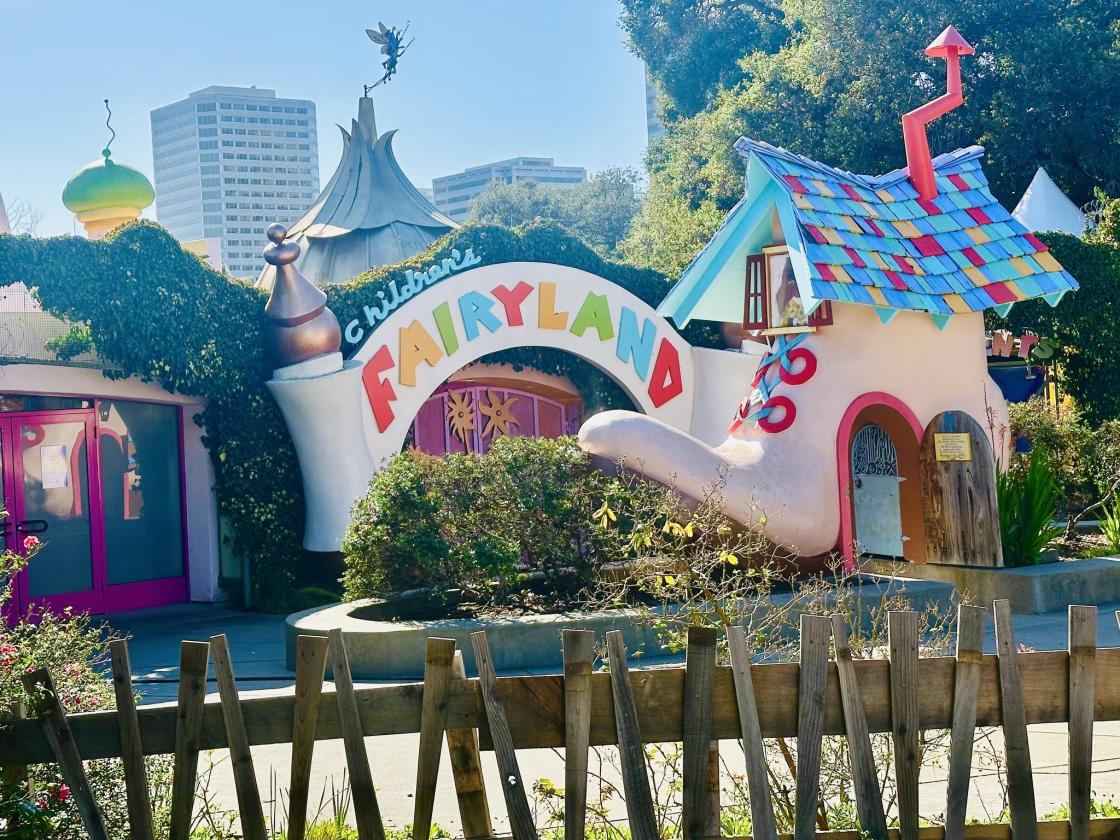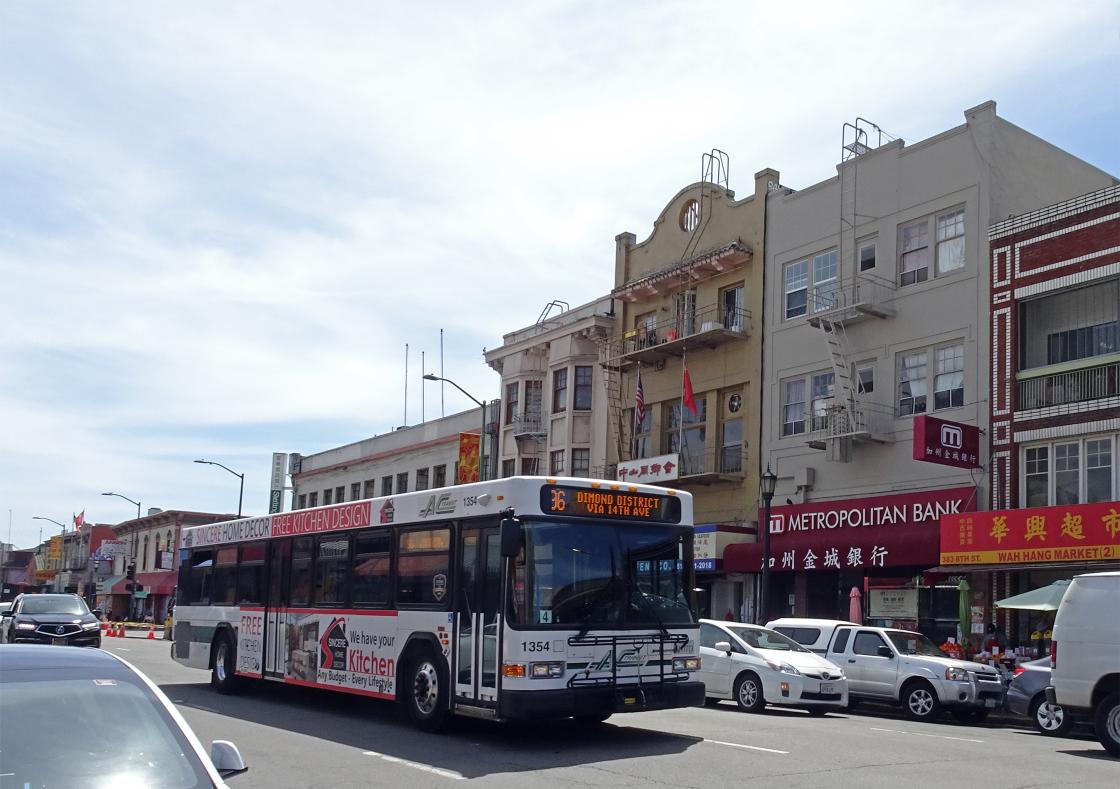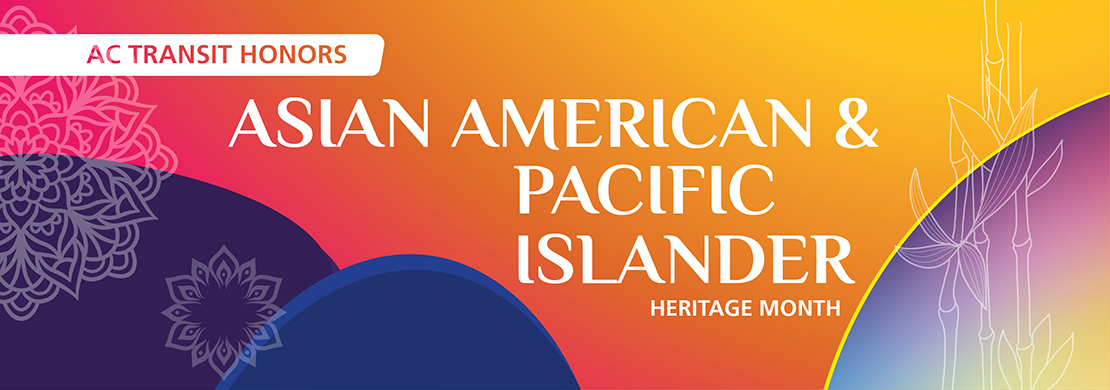AAPI Heritage Month
Every May, we celebrate and honor Asian American and Pacific Islander Heritage Month.
In 1978, a joint congressional resolution established the first 10 days of May as Asian/Pacific American Heritage Week. These dates were chosen to coincide with two milestones in Asian/Pacific American history: the arrival of the first Japanese immigrants to the United States (May 7, 1843) and contributions of Chinese workers in the building of the transcontinental railroad, which was completed May 10, 1869.
In 1992, Congress expanded the observance to a monthlong celebration, now known as Asian American and Pacific Islander Heritage Month. Find out more about AAPI Heritage Month here.
Discover AAPI Events
In honor of AAPI Month this year, we're highlighting AAPI communities and events accessible by AC Transit bus. Explore the cultural richness and significance of these destinations as America recognizes our diverse AAPI communities.

Children's Fairyland
Date: May 3-26
Location: 699 Bellevue Ave, Oakland
Bus lines: 12, 33, NL
Children's Fairyland will celebrate AAPI Heritage every weekend in May. There will be dance performances, storytelling, music, cultural arts and crafts, and more. Learn how to play traditional games from China and Taiwan. Bakers will demonstrate how to make mochi donuts in a cooking demonstration. Have a great time learning together as a community.

Oakland Chinatown
Location: 7th St. to 12th St. between Broadway to Jackson St., Oakland
Bus lines: 1T, 12, 18, 19, 20, 33, 40, 51A, 62, 72, 72M, 72R, 88, 96
Oakland Chinatown, dating back to the 1850s, is one of the oldest Chinatowns in the United States. Dive into its rich culture by visiting the many restaurants, markets, and stores representing the heritage of diverse Asian cultures. The Oakland Public Library's Asian Branch at 388 Ninth Street offers literature in Chinese, Japanese, Korean, and Vietnamese, and an auditorium for cultural and community events. The library also features an English-language Asian Interest Collection covering topics from heritage and culture to the Asian American experience and immigrant history.

Oakland Museum of California
Location: 1000 Oak St., Oakland
Bus lines: 1T, 18, 29, 33, 40, 62, 88, or 96 __________________________________________________________
Visit the Oakland Museum (OMCA) to learn about Asian American history, and view Asian and Asian American art. OMCA has an ongoing exhibit of California history, including pictures and artifacts documenting Chinese railroad workers and their lives in the late 1800s, and the Japanese-American internment during World War II. Currently on view is Ancestral Visions, a series of paintings by Bay Area artist Chelsea Ryoko Wong, inspired by 20th-century Chinese American women’s dresses from OMCA’s collection.

CAAMFest
Date: May 8-11
Location: Various SF theaters
Bus lines: San Francisco venues can be reached by Transbay bus Lines F, NL, or O or transferring from bus to BART or Muni.
CAAMFest is a film festival by the Center for Asian American Media. The festival have a diverse collection of new Asian American and Asian film and documentaries in San Francisco during May. It often serves as a platform for emerging Asian American independent filmmakers and highlights upcoming Asian cinema.
